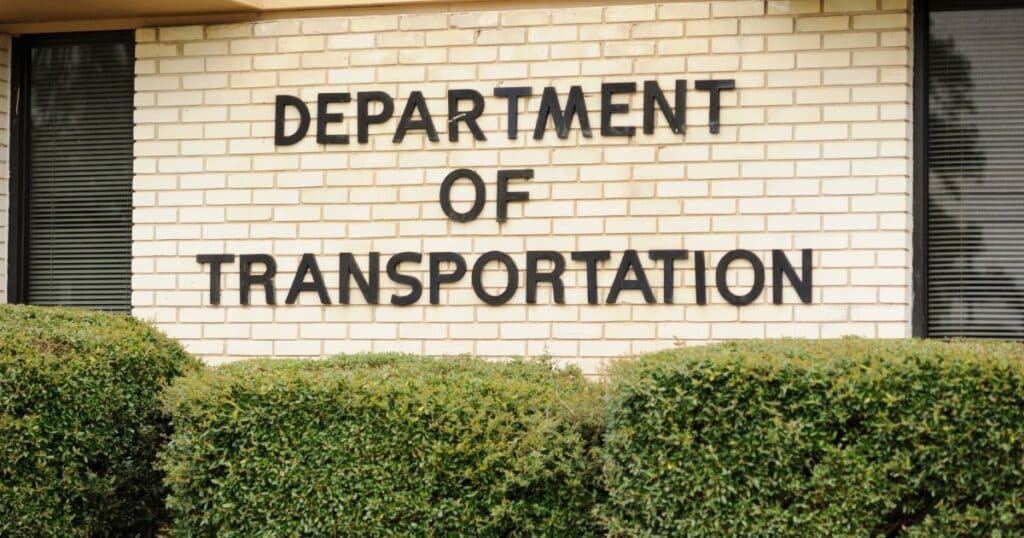The U.S. Department of Transportation (DOT) recently announced new drug testing policies that allow oral saliva testing as an alternative to urine testing for federally regulated transit workers. This policy change is intended to give those who use cannabis off the job greater protection from potential workplace discrimination.
Previously, DOT only accepted urine-based tests for determining the presence of drugs in federally regulated transportation jobs. With this new rule, employers can now also choose to test employees through oral fluid collection kits instead of or in addition to urine samples. The U.S. Department of Transportation believes this change could improve road safety by reducing situations where individuals drive under the influence of drugs or alcohol.

Saliva Testing Benefits Cannabis Users and Employers
The new DOT drug testing policy could benefit cannabis users, as its use of saliva tests instead of urine tests allows for more accurate detection. Saliva typically contains only trace amounts of cannabis metabolites, which means it is much less likely to result in false positives due to previous use.
Additionally, since the amount of time that cannabis remains detectable in the saliva is significantly shorter than in urine (generally ranging from one to two days versus up to 30 days or longer), it can provide employers with a better assessment of an individual’s current level of impairment.
This improved accuracy could help reduce the potential for workplace discrimination against individuals who choose to use cannabis off-duty while still ensuring safety on roads and highways across America.
The new policy also provides employers with improved efficiency regarding drug testing. For example, using oral saliva collection kits will reduce the time needed for sample collection and reduce costs associated with transporting samples.
Furthermore, oral saliva tests are much easier to administer than urine-based tests and can be conducted quickly in any setting, making the whole process faster and more efficient.
This change could also potentially improve employee morale as it reduces the need for individuals to undress or urinate in a collection container. In addition, allowing the alternative of oral fluid testing would reduce discomfort and other issues for individuals. Finally, reducing the burdens associated with testing may also reduce barriers to transportation employment for individuals who the intrusive nature of urine-based testing may have previously deterred.
The new drug policy could also increase employer cost savings as oral saliva tests can be processed more quickly without using a laboratory or specialized personnel. Employers will also no longer need to purchase and maintain transportable drug testing kits, which can be cost-prohibitive. This could reduce overhead costs associated with drug testing, making the process more efficient and cost-effective for employers.
The new DOT rule is a significant step forward in creating greater protection from workplace discrimination for individuals who use cannabis off the job while still maintaining safety on the roads.

Stats Show Cannabis Legalization In States Reduces Accidents
A study conducted in May 2022 titled “Marijuana Legalization and Truck Safety: Does the Pineapple Express Damage More Pineapples?” has found that U.S. recreational cannabis legalization reduced the number of heavy truck accidents by 11% in the eight states in which the study was conducted. This finding provides further evidence that allowing individuals to use marijuana off-duty is not detrimental to road and highway safety but also provides an economic benefit due to fewer crashes.
New Testing Could Set Precedence For Other Industries to Follow
The new drug policy from the DOT could also potentially set a positive precedent for other industries and jurisdictions regarding cannabis acceptance. For example, saliva testing as an alternative to urine-based testing is becoming increasingly common in many sectors, including healthcare, law enforcement, and education. This new rule from the DOT provides a good example for these and other industries that may be considering implementing similar policies that maintain safety while reducing barriers to employment related to cannabis use.
By amending its drug testing policy this way, the DOT has taken a significant step forward in creating greater protection from workplace discrimination for individuals who use choose to use cannabis off the job while ensuring safety on roads and highways across America.
Furthermore, this change could provide employers with increased efficiency and cost savings while potentially setting a positive precedent for other industries looking to accept cannabis use.
Enjoyed that first hit? Come chill with us every week at the Friday Sesh for a freshly packed bowl of the week’s best cannabis news!
















